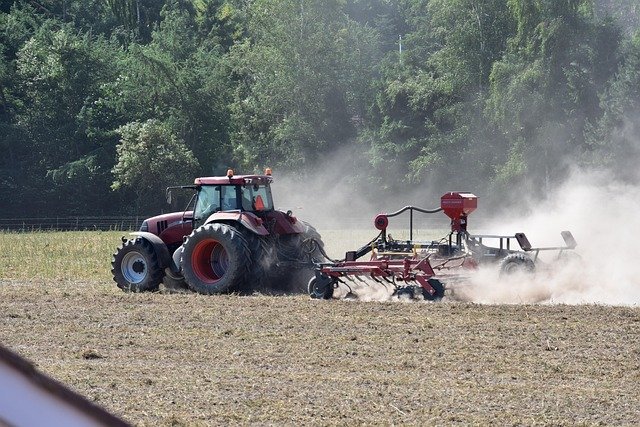The Compact Tractor Decision That Changed Everything
When Mike inherited his grandfather's 15-acre property, he faced a dilemma that thousands of rural property owners encounter every year. The landscape was beautiful but overwhelming to maintain. What he discovered about compact tractors, financing options, and the hidden costs that dealers don't always mention upfront completely changed his approach to property management. Here's what every potential compact tractor owner should know before making this significant investment.

The Growing Popularity of Compact Tractors Among Property Owners
Compact tractors have become increasingly popular among property owners in recent years, and for good reason. These machines offer the perfect balance between power and maneuverability for properties ranging from two to twenty acres. Unlike their full-sized agricultural counterparts, compact tractors can navigate tight spaces while still providing enough muscle for serious work. Their versatility allows owners to transition seamlessly between mowing large areas, digging fence post holes, moving materials, and even snow removal with simple attachment changes.
The compact tractor market has responded to this demand with models specifically designed for residential and small farm use. Modern machines feature user-friendly controls, improved comfort features, and fuel efficiency that makes them practical for regular weekend warriors and daily users alike. For many owners, the decision to invest in a compact tractor comes after years of struggling with collections of single-purpose equipment that clutter storage spaces and require individual maintenance schedules.
Understanding Horsepower Requirements for Your Property
Key factors to evaluate include horsepower requirements, which vary significantly depending on your specific needs. For basic lawn and garden maintenance on smaller properties, compact tractors in the 20-25 horsepower range typically provide adequate power. However, if you’re regularly handling heavier materials like rocks, logs, or doing serious excavation work, models in the 35-40 horsepower category become necessary.
The terrain of your property also factors heavily into horsepower decisions. Flat, clear land can be managed with less powerful machines, while hilly, rugged, or wooded areas demand more robust options. Many first-time buyers make the mistake of underestimating their horsepower needs, only to find themselves upgrading within a few years as their ambitions for land improvement grow. Making the right horsepower decision initially can prevent costly upgrades later and ensure your tractor can handle everything you throw at it.
Financial Considerations: Budgeting and Financing Options
Financing terms represent another crucial aspect of compact tractor ownership that can dramatically affect your experience. Most major dealers offer multiple financing options, from traditional loans to low-interest or zero-interest promotional periods. The financial commitment for quality compact tractors typically ranges from $15,000 to $35,000 depending on size, features, and included attachments.
Many owners report that financing through dealerships provides convenience but comparing rates with local credit unions or agricultural lending programs often yields better long-term value. Leasing options have also become increasingly popular, allowing property owners to access newer models with lower initial costs. Understanding the total cost of ownership—including maintenance costs, fuel consumption, and eventual resale value—provides a more accurate picture than focusing solely on monthly payments.
Maintenance Considerations That Affect Long-Term Value
Maintenance considerations play a pivotal role in the compact tractor ownership experience. Regular service intervals, parts availability, and dealer support networks vary significantly between manufacturers. The accessibility of routine maintenance points like filters, fluid reservoirs, and grease fittings can make the difference between quick weekend upkeep and frustrating, time-consuming service sessions.
Proactive maintenance can dramatically extend a tractor’s useful life, with many well-maintained compact tractors running effectively for 2,000-3,000 hours or more. Modern models typically feature hour meters rather than odometers, as working hours more accurately reflect usage than distance traveled. First-time owners often underestimate maintenance costs, which typically average $300-600 annually for routine service when performed by dealers. Those comfortable with DIY maintenance can reduce these costs substantially while developing valuable mechanical skills.
Brand Comparison: Finding the Right Manufacturer
Popular brands like Kubota, Mahindra and others offer different advantages in terms of reliability, dealer networks, and specialized features. The competitive compact tractor market has created distinct differences between major manufacturers, with each developing particular strengths.
| Brand | Price Range | Key Strengths | Service Network |
|---|---|---|---|
| Kubota | $15,000-$30,000 | Exceptional reliability, strong resale value | Extensive dealer network |
| Mahindra | $12,000-$25,000 | Value pricing, longer warranties | Growing dealer presence |
| John Deere | $18,000-$35,000 | Premium features, name recognition | Comprehensive dealer support |
| New Holland | $14,000-$28,000 | Fuel efficiency, hydraulic performance | Well-established service centers |
| Kioti | $13,000-$26,000 | Competitive pricing, included features | Expanding dealer presence |
Prices, rates, or cost estimates mentioned in this article are based on the latest available information but may change over time. Independent research is advised before making financial decisions.
Kubota has built a reputation for exceptional reliability and longevity, with many owners reporting trouble-free operation for decades. Mahindra offers competitive pricing with generous warranty terms, making them attractive for budget-conscious buyers. John Deere commands premium pricing but delivers refined operation and excellent dealer support. Newer entrants like Kioti have gained market share by offering competitive feature sets at lower price points.
The Transformative Impact of Making the Right Choice
The decision to purchase a specific compact tractor often becomes a defining moment for property owners. The right machine becomes an extension of the owner’s vision for their land, enabling projects that would otherwise remain dreams. From creating ponds and building driveways to maintaining food plots for wildlife and clearing snow in winter, compact tractors transform the relationship between owners and their property.
Many owners report their compact tractor purchase changed everything about their property management approach, reducing dependency on contractors and creating new possibilities for land improvement. The sense of self-sufficiency and accomplishment that comes with mastering these machines often extends beyond practical benefits, becoming a source of pride and satisfaction that continues for years after the initial purchase decision.




